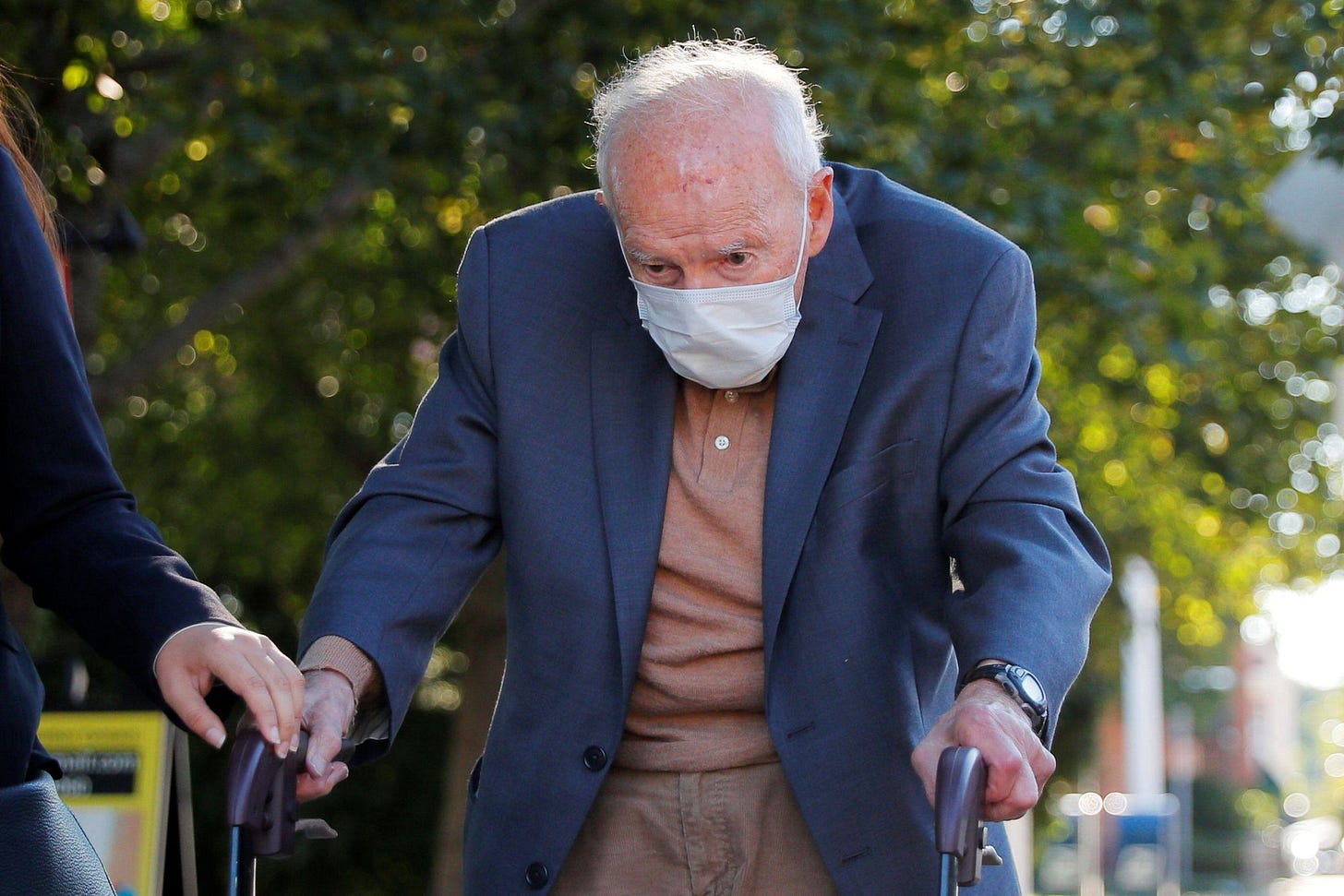An expert hired by the state of Massachusetts has recommended that Theodore McCarrick be judged incompetent to stand trial on decades-old sexual assault charges against the former cardinal.
The expert’s findings were made public during a June 29 hearing in Dedham District Court, according to a statement from the Norfolk District Attorney.
While the recommendation does not itself mean that charges against McCarrick have been dismissed, a hearing on the question will be held Aug. 30, before the case against McCarrick proceeds.
Charges against the former cardinal could be dismissed at that time.
—
In February, McCarrick filed a motion asking that Massachusetts charges against him be dismissed, with his attorneys arguing that he lacked mental competence for a trial.
In response, the state of Massachusetts hired its own expert evaluator, who met with McCarrick in Missouri, and who subsequently examined his medical records.
The examiner said Thursday morning that McCarrick does not appear to be competent to stand trial, and filed a report with Judge Michael Pomarole to that effect, according to a statement from the Norfolk District Attorney.
Before he asked that charges be dismissed, McCarrick, 92, had pleaded not guilty to sexually molesting a 16-year-old-boy during a wedding reception at Wellesley College in Wellesley, Massachusetts in 1974. He faces three counts of indecent assault and battery on a person over 14. Each criminal count carries a maximum penalty of five years imprisonment in Massachusetts.
While numerous allegations of sexual abuse have surfaced against McCarrick over the last five years, and he has been found guilty in a Vatican administrative penal process, the Massachusetts case is one of only two criminal cases against him. Many of the other allegations against McCarrick have fallen beyond state statutes of limitation, effectively preventing his prosecution in state courts.
In Massachusetts, McCarrick was able to be criminally charged with alleged assaults from 1974 because he was not a state resident and the statute of limitations’ time period for prosecution was paused when he left the state.
McCarrick’s attorneys had said in a January motion that he was being examined by Dr. David Schretlen, a psychiatry and behavioral science professor from the Johns Hopkins University School of Medicine.
Defense attorneys said in February they had serious concerns that McCarrick “would be unable to assist meaningfully in the preparation of his own defense or to consult effectively with counsel during trial with a reasonable degree of rational understanding.”
They said they anticipated that the medical evaluation would show “significant neuropsychological deficits,” which appear “to be worsening rapidly, and to impair both Mr. McCarrick's cognition and his memory.”
In June 2018, the Archdiocese of New York announced that McCarrick had been removed from public ministry, at the instruction of Pope Francis, over credible allegations that he had sexually abused an altar server.
The next month, he resigned from the College of Cardinals. In the months that followed, numerous other allegations of sexual abuse and coercion were raised against him.
McCarrick was laicized after a Vatican administrative penal process in 2019, which found him guilty canonically of sexual crimes with minors and adults, with the aggravating factor of “abuse of power.”
McCarrick was also found by the Vatican to have solicited sexual contact within the sacrament of confession.
In April, McCarrick was charged in Wisconsin with sexually assaulting a teenage boy in 1977.
He was accused of fondling an 18-year-old boy’s genitals when they were both guests at a house in Geneva Lake.
Wisconsin’s Department of Justice announced that the charges came out of an attorney general probe into Catholic dioceses in state. That probe has faced criticism from both Catholic official and some victims’ advocates. The Milwaukee archdiocese has criticized the review as targeted anti-Catholicism, while one victims’ advocacy group says the state’s AG has not done enough to pursue records on alleged sexual abuse cases.
The alleged victim in the Wisconsin case, identified by Fox6 as James Grein, said McCarrick was close to his family, and alleged that he was 11 years old when McCarrick first exposed himself and soon after began to sexually assault him, frequently at parties.
Grein also said McCarrick had non-consensual intercourse with him, and had taken him on one occasion to an event where multiple adult males had intercourse with him, although those alleged events did not take place in Wisconsin and are not part of the Wisconsin criminal charges.
In 2018, Grein told the New York Times that he had been frequently abused by McCarrick, a family friend. Grein alleges that the abuse began when he was 11, in the early 1970s, before McCarrick was ordained a bishop.
Grein is also believed to the alleged victim in the Massachusetts case against McCarrick.



